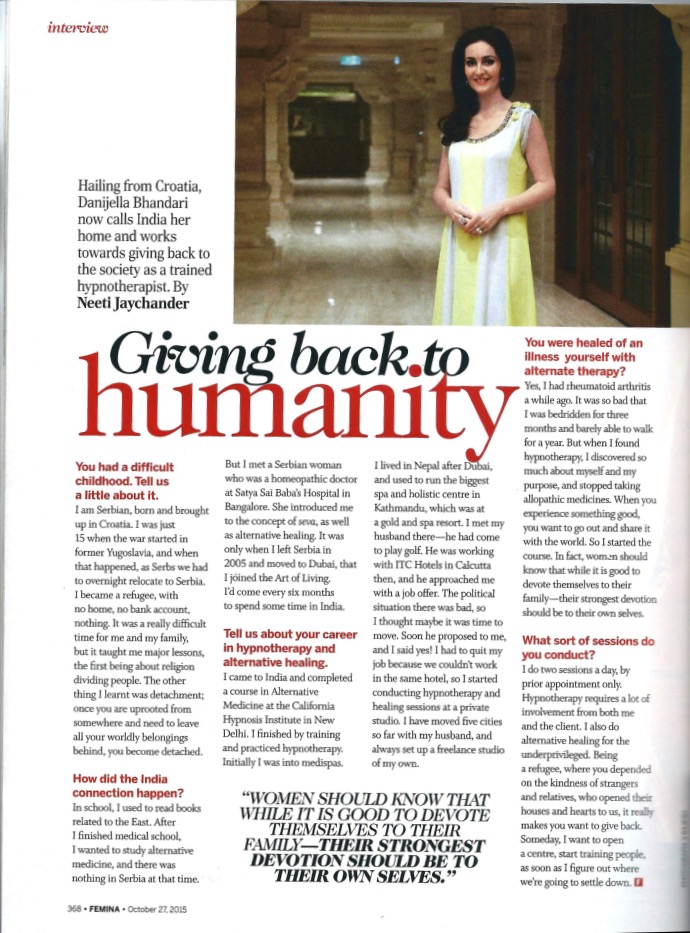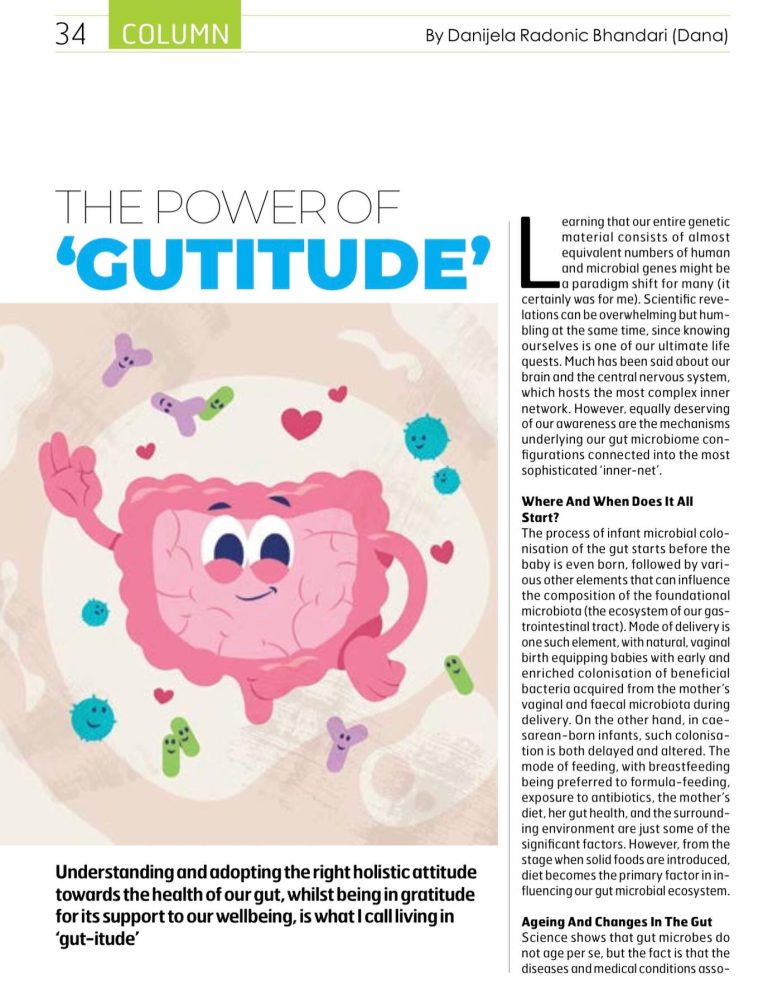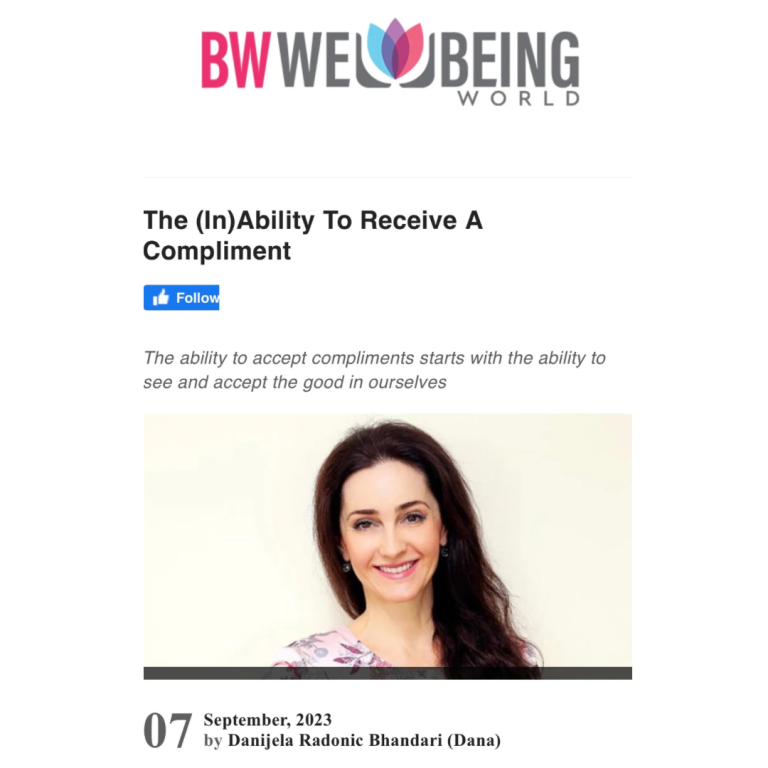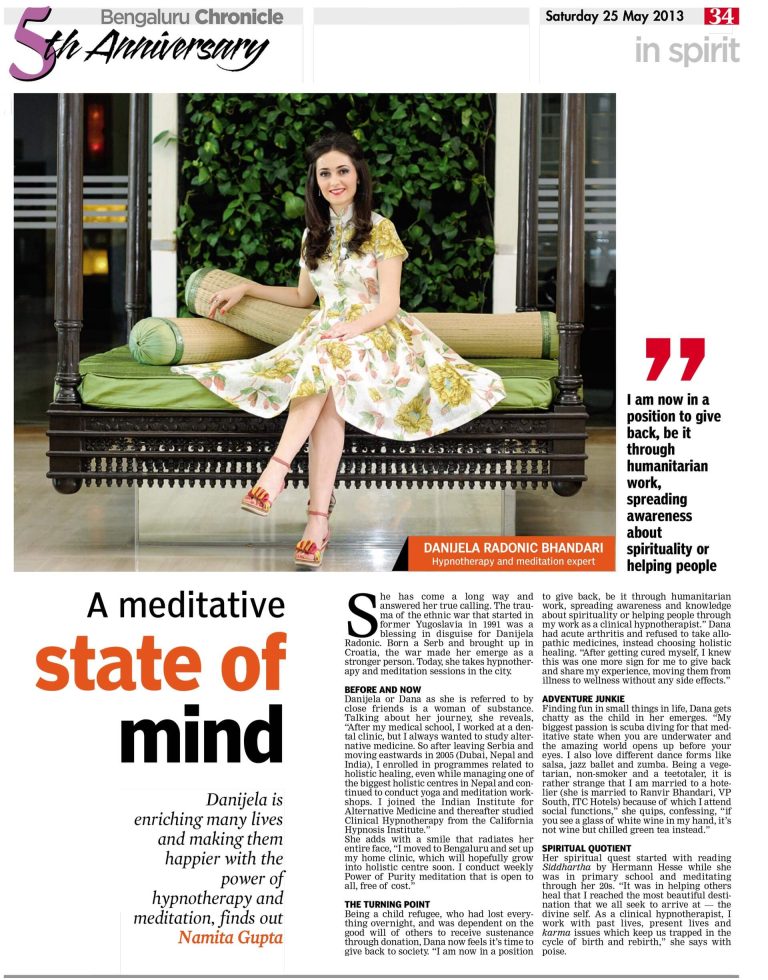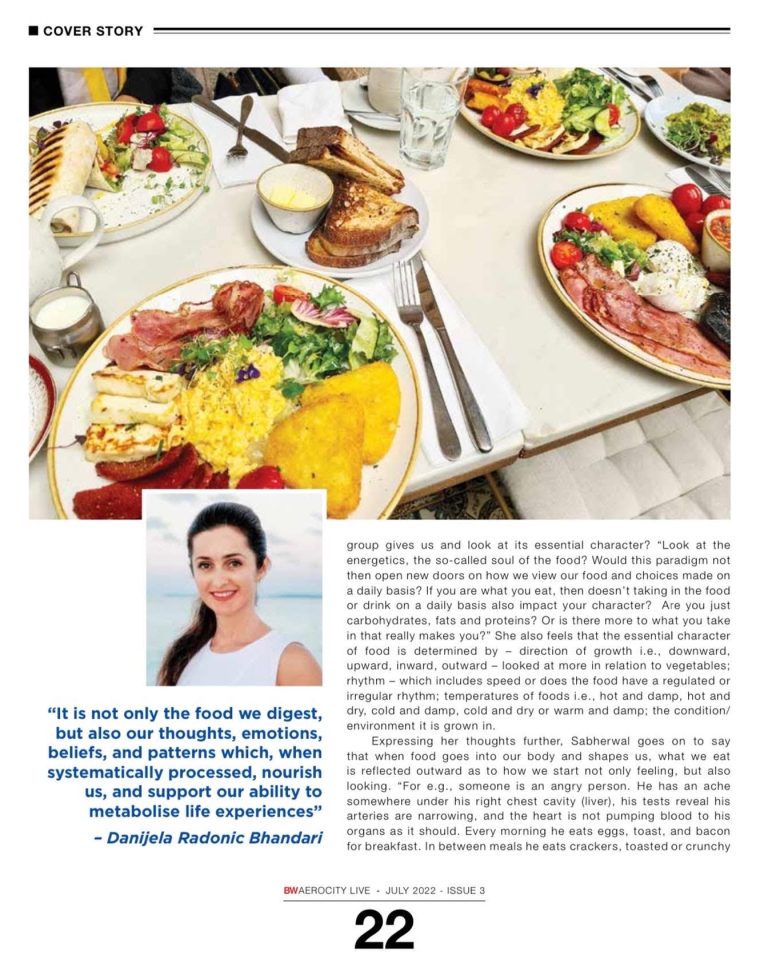Giving back to humanity
By Neeti Jaychander, FEMINA – October 27, 2015
Hailing from Croatia, Danijella Bhandari now calls India her home and works towards giving back to the society as a trained hypnotherapist.
You had a difficult childhood. Tell as a little about it.
I am Serbian, born and brought up in Croatia. I was just 15 when the war started in former Yugoslavia, and when that happened, as Serbs we had to overnight relocate to Serbia. I became a refugee, with no home, no bank account, nothing. It was really difficult time for me and my family, but it taught me major lessons, the first being about religion dividing people. The other thing I learnt was detachment; once you are uprooted from somewhere and need to leave all your worldly belongings behind, you become detached.
How did the India connection happen?
In school, I used to read books related to the East. After I finished medical school, I wanted to study alternative medicine, and there was nothing in Serbia at that time. But I met a Serbian woman who was homeopathic doctor at Satya Sai Baba’s Hospital in Bangalore. She introduced me to the concept of seva, as well as alternative healing. It was only when I left Serbia in 2005 and moved to Dubai, that I joined the Art of Living. I’d come every six months to spend some time In India.
Tell us about your career in hypnotherapy and alternative healing.
I came to India and completed a course in Alternative Medicine at the California Hypnosis Institute in New Delhi. I finished by training and practiced hypnotherapy. Initially I was into medispas. I lived in Nepal after Dubai, and used to run the biggest spa and holistic centre in Kathmandu, which was at a gold and spa resort. I met my husband there – he had come to play golf. He was working with ITC Hotels in Calcutta then, and he approached me with a job offer. The political satiation there was bad, so I thought maybe it was time to move. Soon he proposed to me, and I said yes! I had to quit my job, because we couldn’t work in the same hotel, so I started conducting hypnotherapy and healing sessions at a private studio. I have moved five cities so far with my husband, and always set up a freelance studio of my own.
You were healed of an illness with alternate therapy?
Yes, I had rheumatoid arthritis a while ago. It was so bad that I was bedridden for three months and barely able to walk for a year. But when I found hypnotherapy, I discovered so much about myself and my purpose, and stopped taking allopathic medicines. When you experience something good, you want to go out and share it with the world. So I started the course. In fact, women should know that while it is good to devote themselves to their family – their strongest devotion should be to their own selves.
Women should know that while it is good to devote themselves to their family – their strongest devotion should be to their own selves.
What sort of sessions do you conduct?
I do two sessions a day, by prior appointment only. Hypnotherapy requires a lot of involvement from both me and the client. I also do alternative healing for the underprivileged. Being a refugee, where you depend on the kindness of strangers and relatives, who opened their houses and hearts to us, it really makes you want to give back. Someday, I want to open a centre, start training people, as soon as I figure out where we’re going to settle down.
